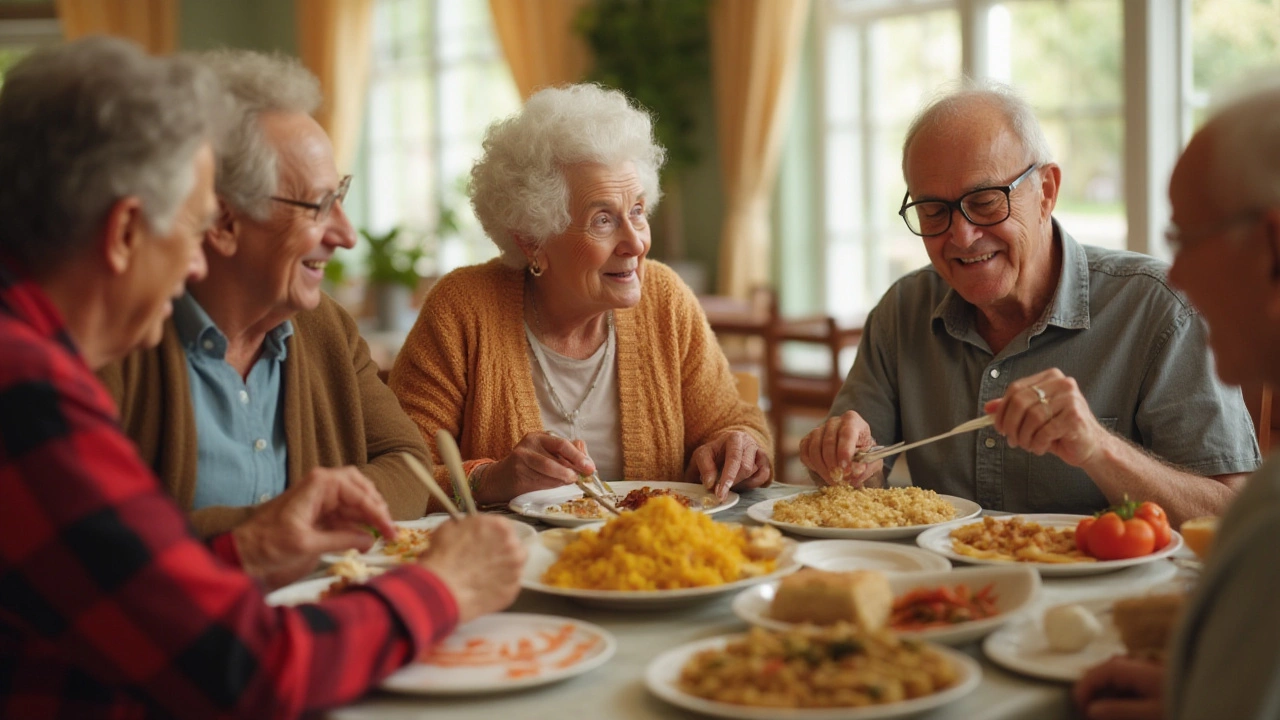Senior Nutrition Made Easy: Real Tips You Can Use Today
Getting the right nutrients as you get older isn’t a mystery – it’s about making a few smart choices that fit your lifestyle. You don’t need complicated recipes or expensive supplements; you just need to focus on the foods that give your body what it needs to stay strong, keep your mind sharp, and enjoy everyday moments.
What Your Body Craves After 60
As we age, the body’s calorie needs often drop, but the demand for vitamins and minerals stays the same or even goes up. Think of it like this: you’re trimming the fuel but still need the same engine parts. Here are the top nutrients to watch:
- Protein – helps keep muscles from shrinking. Aim for 1‑1.2 grams per kilogram of body weight. A cup of lentils, a piece of fish, or a handful of nuts can do the trick.
- Calcium & Vitamin D – keep bones sturdy. Dairy, fortified soy milk, or leafy greens paired with safe sun exposure cover both.
- Fiber – supports digestion and heart health. Whole grains, fruits with skins, and veggies are your best friends.
- Omega‑3 fatty acids – protect the brain and heart. Fatty fish, flaxseeds, or a spoonful of walnuts are easy picks.
- Vitamin B12 – often drops after 60. If you eat less meat, consider fortified cereals or a simple supplement.
Meeting these needs doesn’t have to feel like a chore. Build a plate that’s colorful, and you’ll automatically get a mix of these nutrients.
Practical Meal Ideas That Stick
Planning ahead saves time and reduces the temptation to reach for processed snacks. Try these quick combos:
- Breakfast: Greek yogurt topped with berries, a sprinkle of chia seeds, and a drizzle of honey.
- Lunch: Whole‑grain wrap filled with grilled chicken, avocado, spinach, and a squeeze of lemon.
- Dinner: Baked salmon, quinoa, and steamed broccoli tossed with olive oil and garlic.
- Snack: A small handful of almonds or a sliced apple with peanut butter.
Notice how each meal includes protein, healthy fats, and fiber? That balance keeps you full longer and steadies blood sugar.
If cooking feels overwhelming, start with “one‑pot” meals. A pot of chili with beans, lean ground turkey, and diced veggies delivers protein, fiber, and flavor in a single bowl. You can freeze leftovers for busy days.
Stay Hydrated and Spot Hidden Pitfalls
Older adults often forget to drink enough water. Dehydration can mimic fatigue, dizziness, or even confusion. Keep a bottle handy and sip throughout the day. If plain water feels bland, add a slice of lemon, cucumber, or a splash of 100% fruit juice.
Watch out for excessive sodium and added sugars – they sneak into canned soups, processed meats, and sweetened drinks. Swap for low‑sodium broth, fresh herbs, and unsweetened beverages.
When appetite drops, try smaller, more frequent meals instead of three big ones. A cup of soup, a mini salad, and a piece of fruit can be easier to digest while still delivering nutrients.
When to Consider Supplements
Food should be your first source of nutrients, but some seniors benefit from a daily multivitamin, especially for B12 and vitamin D. Talk to a healthcare provider before starting any supplement – they can recommend the right dose based on blood tests.
Lastly, involve friends or family in your meals. Sharing a table makes eating more enjoyable and can motivate you to stick to healthy choices. Community centres often host senior nutrition workshops – they’re a great way to learn new recipes and meet peers.
By focusing on protein, calcium, fiber, omega‑3s, and staying hydrated, you set a solid foundation for healthy aging. Keep meals simple, colorful, and balanced, and you’ll feel the difference in energy, mood, and overall well‑being.
Discover Virginia's Senior Food Programs: Essential Support for Seniors
Virginia offers a variety of senior food programs aimed at addressing the nutritional needs of the elderly community. These programs focus on providing healthy and balanced meals to ensure seniors maintain good health. From organized food banks to home delivery services, eligible participants receive essential nutrition without the burden of sourcing it themselves. Understanding the eligibility criteria and application process can help more seniors benefit from these initiatives. With community support, these programs continue to thrive, promoting both health and social interaction among seniors.
Read More